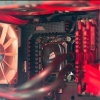Windows 8.x loses market share for second consecutive month
-
Featured Topics
-
Topics
-
PapaAquaWet ·
Posted in Graphics Cards0 -
0
-
0
-
1
-
Average Nerd ·
Posted in Build Logs0 -
5
-
1
-
5
-
alexfic ·
Posted in New Builds and Planning3 -
1
-

















Create an account or sign in to comment
You need to be a member in order to leave a comment
Create an account
Sign up for a new account in our community. It's easy!
Register a new accountSign in
Already have an account? Sign in here.
Sign In Now